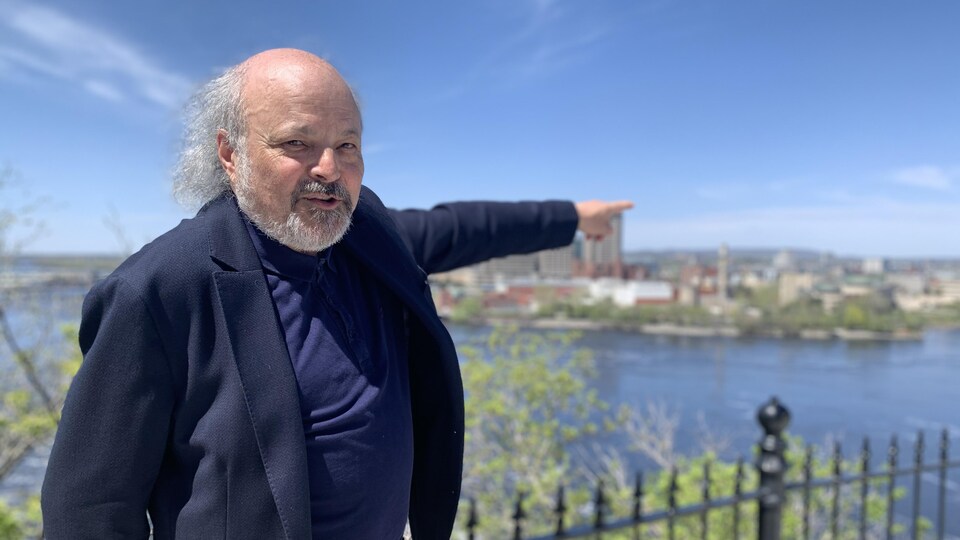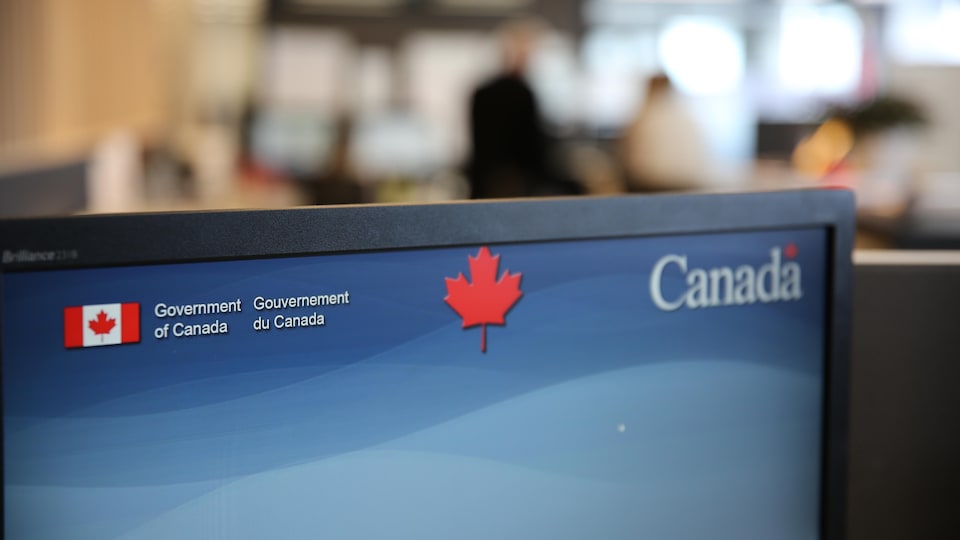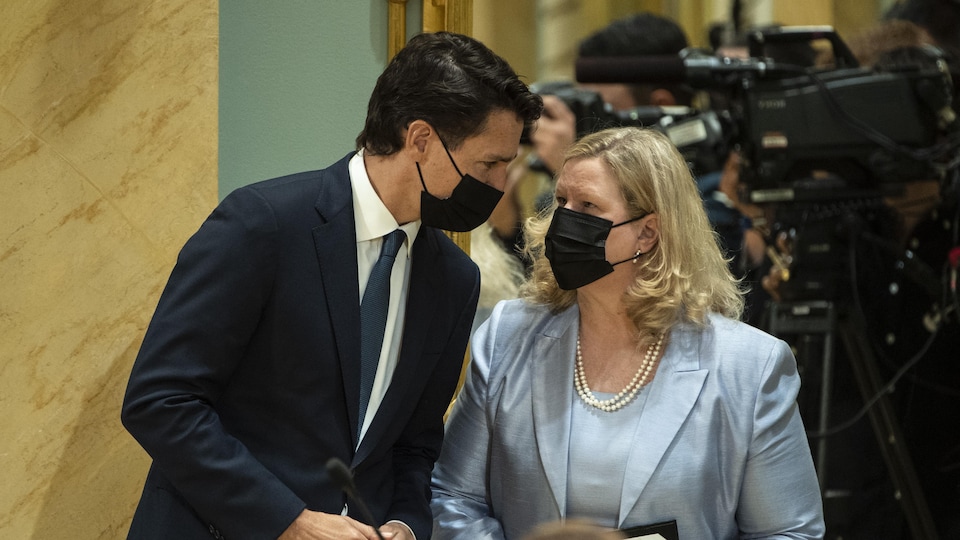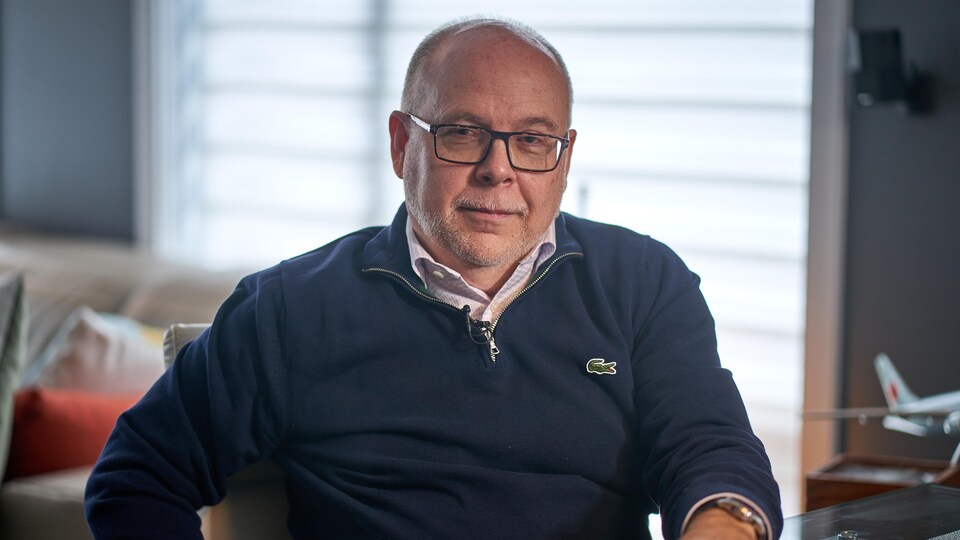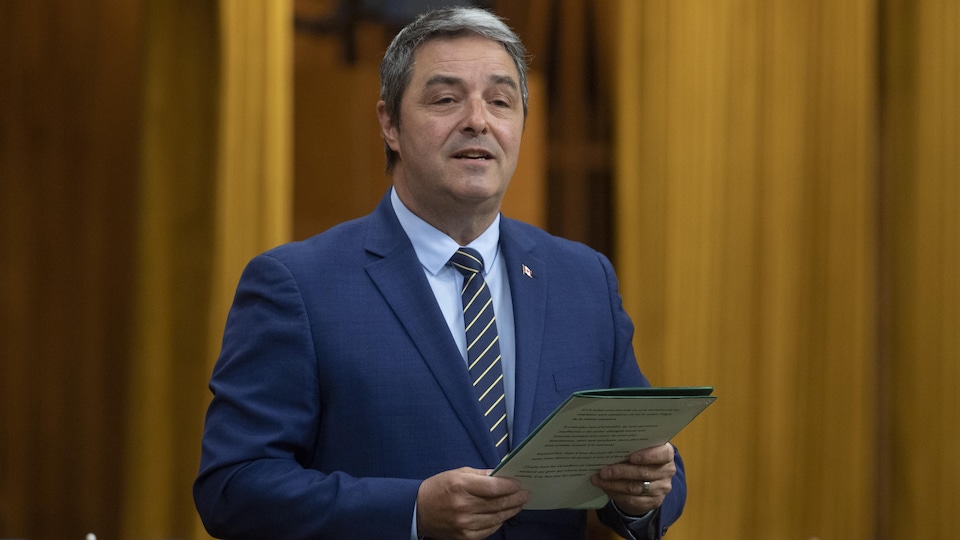After the language controversies at Air Canada and Canadian National (CN), we wanted to see what the status of French was among the top officials in federal departments. The observation is clear: English dominates at the top of the pyramid.
Among those currently holding deputy minister or associate deputy minister positions, 81%, or more than 4 in 5, are Anglophones, according to data obtained by Radio-Canada. On the other hand, 19% of the highest positions have French as their first official language spoken.
This percentage of 19% is less than the weight of Francophones nationwide, which is close to 23%.
More importantly, it is less than the weight of Francophones in public service in general, which is 31%.
How to explain such diversity? Why are francophones recruited so much in the beginning, usually because they are more bilingual, but less present when you get to the top of the ladder?
A space that expands at the very end
Louis Lévesque, who served as Deputy Minister of Intergovernmental Affairs, International Trade and Transport Canada, found this difference very worriedespecially since it really expands in the final stages.
According to data obtained by Radio-Canada, executives ranked, in the hierarchy, just below the positions of deputy ministers and associate deputy ministers are 28% Francophone.
What is the reason why, from a group represented at 28%, we fall into the next dimension to a group represented at 19%? That’s the questionbelieves Mr. Lévesque.
In the Trudeau government, we say we know there is a language problem, but we offer some explanations. Too many executives are incapable of supervising their employees in the official language of their choicewrites to the Office of the Prime Minister.
The selection process
Daniel J. Caron, a bilingual Francophone Deputy Head of Library and Archives Canada – the equivalent of the position of Associate Deputy Minister – offers some food for thought.
First, you need to understand how the process for selecting deputy ministers is established. Officially, he reports to Justin Trudeau, who based himself on recommendations made by the Clerk of the Privy Council Office, the big boss of public service, in a way.
Unlike previous levels, this is not a process with a formal competition where send your CV, explained Daniel J. Caron. Yes, skill and experience are important, but so is networking.
To see, you need to see, hear in the forums of assistant deputy ministers, executives to signal that you want to contributerefers to the former manager.
However, in higher operational spheres, conversations and meetings are primarily in English. That doesn’t mean we can’t speak Frenchcontinued the former administrator, but he found that, sometimes, we are better understood or we can have more impact when we express our ideas in English.
It happens, he says, that you make a sentence in the language of Molière and you do not understand, because not everyone understands the subtleties. And moreover, I saw it, a sentence made in French, and there, it was taken later in English, and it was suddenly a stroke of genius.
Shouldn’t you be bilingual?
Of course, there are language requirements, even for English speakers coming into these high positions. Deputy ministers and associate deputy ministers are usually selected from a group of public service executives who must have passed, prior to their appointment, a French exam, with a popular rating. CBC.
This means we need an advanced level (C) in reading and speaking, and an intermediate level (B) in writing. bilingualism perfect or, say, almost perfect however, is not required.
Daniel J. Caron made another observation: the language test does not require comprehension francophone culture or to him cultural references. When a deputy minister develops a public policy, there is no incentive, according to him, to consider examples or dig into studies coming from a francophone environment. Ang The references are very Anglo-Saxonhe says.
” We have gone from biculturalism to relatively narrow bilingualism. French is all about translation. “
According to him, if a francophone is fully bilingual and calm in such a system, he can be seen and can climb the stairs. But if it is a man more ambivalentmaking interventions in French that are not really understood or heard, he may have more likely to be seen in high places.
Add to that the fact that, for more than 20 years, all clerks – hence the heads of the public service who have had tremendous influence over the choices of deputy ministers – have been Anglophones. This reinforces the message, once again, that English is at the forefront at a higher leveladvancement of Daniel J. Caron, stating that he has nothing against individuals like this.
Moreover, the current acting clerk, Janice Charette, has the infallible French, but the fact that various Canadian prime ministers have only appointed Anglophones to the position since 1999 could have an impact on sensitivity to language issuesMr. believes. Caron.
theory and practice
This selection process did not prevent some perfectly bilingual Francophone, such as Louis Lévesque, from reaching the top of the pyramid. There is no element of my personal experience where I feel that I am at a disadvantage compared to other candidateshe said.
Despite everything, the former deputy minister acknowledges that the language requirements for Anglophones and Francophones are not not quite the same in practice. Once a meeting involves certain departments and in particular political personnel, who are not always bilingual, the meeting will take place in English.
You have to understand, he explains, that at the high level of decision making, we are not running at 12 km/h, but at 100 km/h. Quickly exchanging ideas. Certainly, for English speakersHe added, when French, they are a bit difficult.
” Most of my anglophone colleagues, as deputy ministers, are quite fluent in French. Did they speak properly? At different levels. “
There are still cases, he added, where senior English -speaking officials suddenly found themselves with a French -speaking minister requesting that these documents and these briefing sessions be do in his own language. Then there are English speakers pedaling. It happens less often, but it does happen.
But is he acceptable that francophones are more likely to adjust and not speak their own language in many important discussions?
For me, it comes from the fact that there will always be inequality, because of the composition of the Canadian language., he says. He still thinks the Trudeau government should explain why, at the last level of public service, Francophones are suddenly under -represented.
A ” English club “
Despite our repeated requests, the Minister of Official Languages, Ginette Petitpas Taylor, was not available to comment on the file. The Privy Council Office also denied our request for an interview, even though they wrote in a press release that it was considering many factors, [que] Selects diverse executives with high potential to lead public service organizations.
The office of Prime Minister Justin Trudeau, in part, indicates that in the official language law currently in Parliament, it intends to provide more power to the Treasury Board to achieve the vision of a public service where everyone works in the language of their choice.
A statement that shocked Conservative Party spokesman for official languages, Joël Godin. They no longer have to wait for the law to rectify the situation. They are the masters on the boardbecause they decide on appointments, he explains.
” This is not the men’s club. This is the “English club “. “
MP Mario Beaulieu of the Bloc Québécois also believes that the decline in the number of Francophones at the highest level of public service shows the problem of political will.
It shows us, he says, all the hypocrisy of the Official Languages Act. They say it seems bilingual. In theory, it is bilingual, but in fact, it works in English.
According to Mr. Beaulieu, this situation is still reminiscent of the 1960s, where everyone on the floor speaks French, but the foremen all speak English.
As for the NDP’s critic for official languages, Niki Ashton, she understands the Privy Council Office’s desire to have a diverse public service, but believes that easy to use the question of identity as a reason to let go of the French.
Furthermore, with the language decline we are observing across the country, he thinks concrete actions are important. We’ve talked a lot about the private sector in recent months, including Air Canada and CN, but we need to look at what’s happening in our public service. The Trudeau government should lead by examplehe decides.
In collaboration with Marie Chabot-Johnson and Mélissa Trépanier
Source: Radio-Canada
